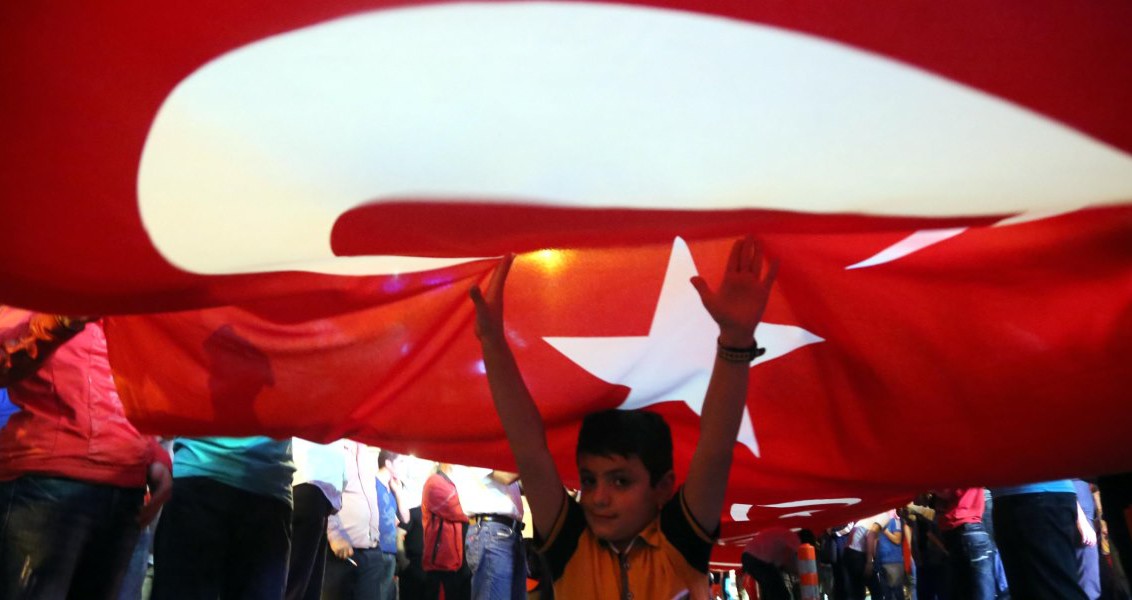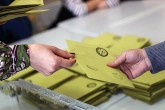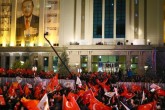Turkey’s political establishment and Turkish society are not exactly unfamiliar with military interventions. The country’s long experimentation with democratic rule has been interrupted on numerous occasions, with military coups in 1960, 1971, 1980 and 1997. The idea of “military-led modernization from above” has deep ideological roots that go back at least a century to the Young Turks and early Kemalists. Despite intensive dialogue and attempt for over half a century to integrate with the European Union, NATO and Western institutions, the shadow of a potential military takeover has never stopped looming over the horizons of the world’s 18th largest economy.
Since assuming power in 2002, the Justice and Development Party (AK Party) has, under the leadership of Recep Tayyip Erdogan, prevented numerous attempts that might have evolved into a military seizure of power, and managed to thwart attempted coups that became subject to court cases, known as the Ergenekon and Sledgehammer cases.Nevertheless, the long night of July 15 witnessed a series of extraordinary events that rattled democracy in Turkey, via an unorthodox military coup perpetrated by military officers associated with a terrorist organization secretly formed by messianic cleric Fethullah Gülen, who has lived in the United States since the 1990s. While the U.S. administration has thus far resisted Turkish demands for his extradition, Gülenist groups have over decades formed a massive web of cells which have infiltrated Turkey’s security establishment, intelligence institutions, judiciary, bureaucracy, academia and business circles. While investigations were already underway and thousands of military officers were expected to be dismissed from duty following the scheduled annual meeting of the Supreme Military Council (YAŞ) in early August, the coup plotters launched a preemptive strike and initiated perhaps the most unorthodox coup in Turkey’s political history.
The coup attempt was unorthodox because it was executed outside of the chain of command, ie not by orders from the central command of the Chief of Staff, but rather by military units controlled by Gülenist coup plotters from different divisions within the military. As such, lower-ranking officials with senior positions in the religious order were able to give orders to higher-ranking Generals. It was also unorthodox in terms of the scale of organized violence used against state institutions, security personnel and the civilian population. Unprecedented events, including the bombing of the buildings of the Parliament (TBMM), National Intelligence Organization (MİT) and Police Special Operation Department (PÖH) by F-16 fighters commandeered by the coup actors, an attempted assassination of the President and the use of attack helicopters, heavy artillery and tanks against civilians; all these distinguish this coup from predecessors. The wide scope and diversity of the democratic reaction to the coup was also unique in Turkish political history, as civilians in both urban and rural centers, with municipal workers and NGO, acted together to resist the initiative that planned to pull Turkey down to the conditions of a third-world country.
While the coup attempt was foiled by the strong leadership of President Erdogan, together with a powerful reaction by the police force and the sacrifices made by civilians, with the human cost of around 250 martyrs and two thousand wounded people, its impact on the economic structure of Turkey has been critical. Turkey was caught by this heinous coup attempt while the economy was recovering from sluggish growth, attempts in foreign policy normalization were advancing and strong growth prospects were expected for 2017. Strong macroeconomic fundamentals and effective crisis management by the Central Bank (CBRT) and economic bureaucracy meant that the immediate impact on banking and the financial sectors was successfully kept to a minimal level. Despite the temporary rise in exchange rates, the stock exchange did not experience a collapse in the value of the traded stocks and there was no speculative attack or exodus of international investors. The rise in the credit default swaps (CDS) figures during the coup attempt, which reflects the perception risk of the country, was roughly equal to the rise observed when previous Prime Minister Davutoğlu declared his resignation.
Every coup attempt creates multifaceted social, political and economic costs, and the July 15 coup attempt by Gülenists is no exception. Policy makers in Turkey are adamant to keep these costs at a minimum, hence the emphasis placed by both President Erdogan and the government on the maintenance of fiscal discipline, structural reforms and incentive packages designed to boost domestic and international investments. Notwithstanding the politically motivated and premature decisions by credit rating agencies, Turkey’s macroeconomic fundamentals remain strong and growth prospects look bright for the medium term.
[Daily Sabah, July 23, 2016]
In this article
- Domestic Policy
- Opinion
- 1960
- 1971
- 1980
- 1990
- 1997
- 2002
- 2016
- 2017
- Daily Sabah
- Europe
- European Union (EU)
- F-16 Fighter Jet
- Global Actors | Local Actors
- Gülenist Terror Group
- Kemalism
- NATO
- Normalization
- Prime Minister
- Recep Tayyip Erdoğan
- The President of the Republic of Türkiye
- Turkish President
- Türkiye
- Türkiye's Justice and Development Party | AK Party (AK Parti)
- United States (US)
- Western World


